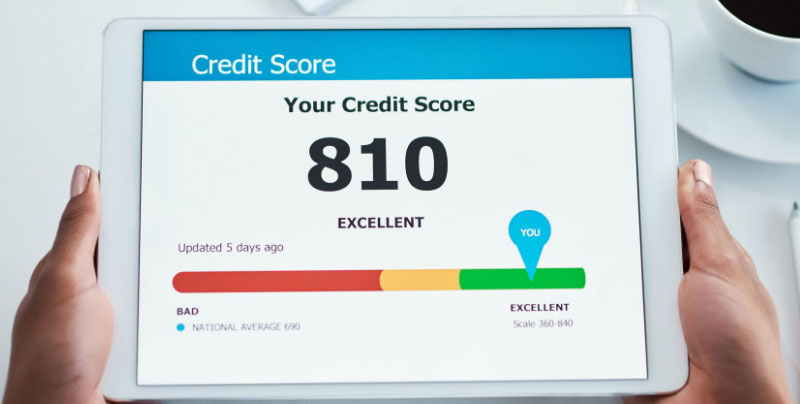Your credit history provides insight into your past debt management practices. Your credit score, a three-digit figure that condenses the details of your credit report, reflects this history.
The terms of loans, including mortgages, can be determined by creditors using this score to assess creditworthiness. Additionally, when you apply for an apartment, landlords could use it. Therefore, keeping a high credit score might significantly affect your financial future.
How Do Credit Scores Change?
Several variables may impact your credit score. Factors including credit utilization, credit history, the age of credit accounts, and most recent credit inquiries might all be important. Your score may also be impacted by the quantity and nature of your balances.
It's crucial to keep in mind that there are several scoring models. Two frequent examples are FICO® and VantageScore®. You might notice a small difference between them as each employs its formula to determine various scores.
To establish an applicant's creditworthiness, each lender applies its credit policies. However, having a strong credit score might still increase your chances of being approved for a loan or receiving a better interest rate.
How to Keep Your Credit Score Up
The long-term responsible use of credit is necessary for a high credit score. The Consumer Financial Protection Bureau (CFPB) has provided some advice on how to maintain a high score:
Pay your invoices promptly.
Paying your credit card bills and other loans on time is crucial, especially because a history of missed or late payments could lower your credit score. Features like automatic bill pay might help you remain on top of your account payments if you're worried about missing a due date.
Keep Your Credit Limit Below
Avoid utilizing your available credit to maintain a low credit utilization ratio. The CFPB states that experts advise limiting your credit utilization to no more than 30% of your available credit.
Keeping an old credit card's credit history
Your credit score also takes into account your account history. So your credit score may benefit more the longer you practise excellent credit habits.
Since you have less available credit after closing a credit card account, your credit utilization rate may go up. Additionally, depending on the account's age, it can shorten your credit history. Furthermore, both of these elements may lower your score. Remember that a credit card issuer may decide to close a credit card account for other reasons as well, such as minimal usage.
Only apply for new credit when necessary.

Before requesting a new card, you might want to think about the credit you require. Your credit score can suffer if you submit several credit applications quickly.
Some lenders provide a pre-approval option if you're unclear if you'll be given a card. Capital One is a part of that. With no influence on your credit score, it simply takes a few minutes to check if you are pre-approved for certain cards.
Verify the accuracy of your credit reports.
Another strategy to keep a high score is to review your credit report for mistakes. Even if you are following all the rules, someone else might not. And mistakes may lower your credit scores. At AnnualCreditReport.com, you may obtain free copies of your TransUnion®, Experian®, and Equifax® credit reports.
Utilize Capital One's CreditWise to keep an eye on your credit.
Utilize CreditWise from Capital One to monitor your credit as frequently as possible. You can check your TransUnion credit report and weekly VantageScore® 3.0 credit score using this free tool from a desktop or mobile device. You don't even have to be a Capital One client to join; using it won't harm your credit score.
Make payments on time.

One of the easiest methods to prove to potential lenders that you are a good credit risk is through on-time payments. Be prepared. Please put all your bills in one location to prevent losing or forgetting them. Keep a note of the bills you owe, and if it would help you remember to pay them, set their due dates so that they fall on the same day each month. (Check with your lender to see if you can alter the due date for your payments.)
Keep track of the payment deadlines. Send your payment by mail or set up a Bill Pay online payment at least one week before the due date. You might want to think about setting up account alerts1 to help warn you of low account balances to help prevent late penalties and overdrafts.
Enrol in automated payments. Making recurring payments is easy and convenient when you use automatic withdrawals from your bank account. To guarantee that you have enough money for the payment when it is drafted, be sure to arrange them following your pay schedule. Keep your contact details up to date.




